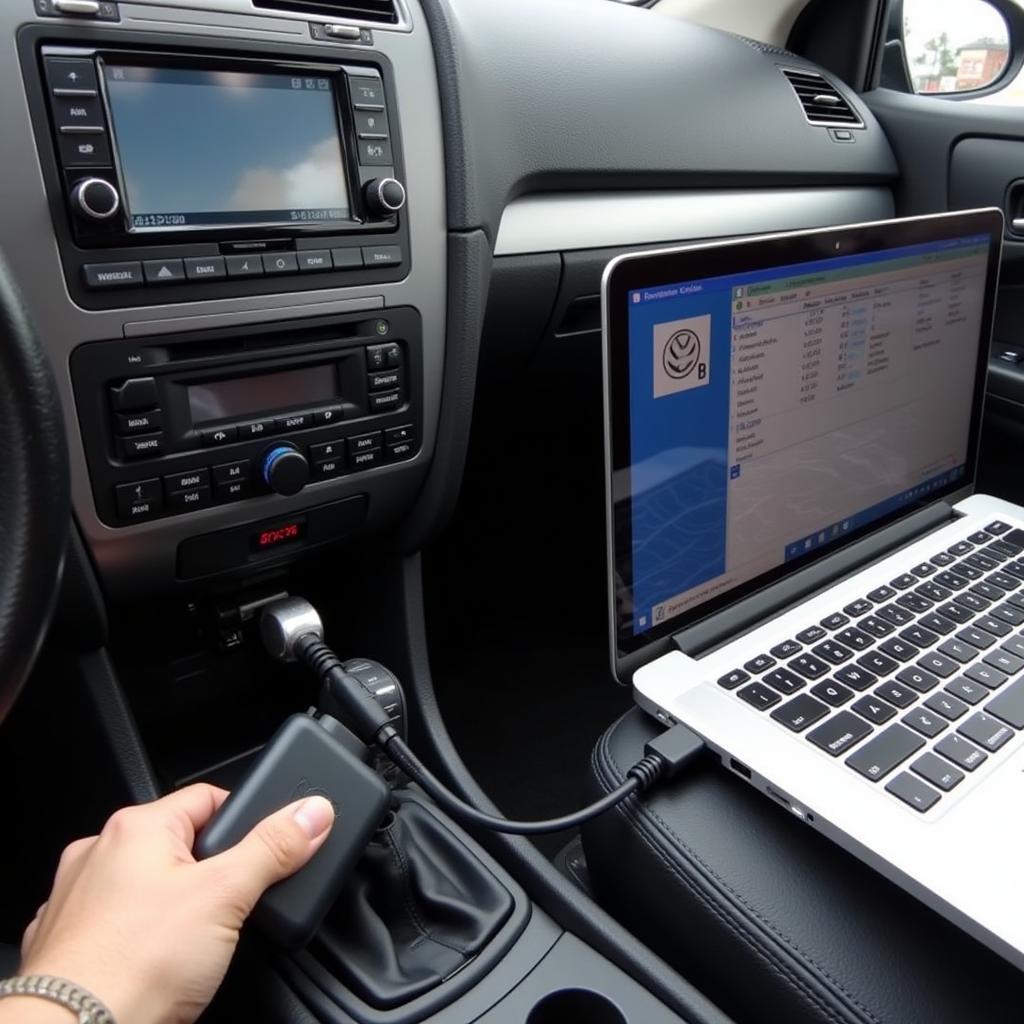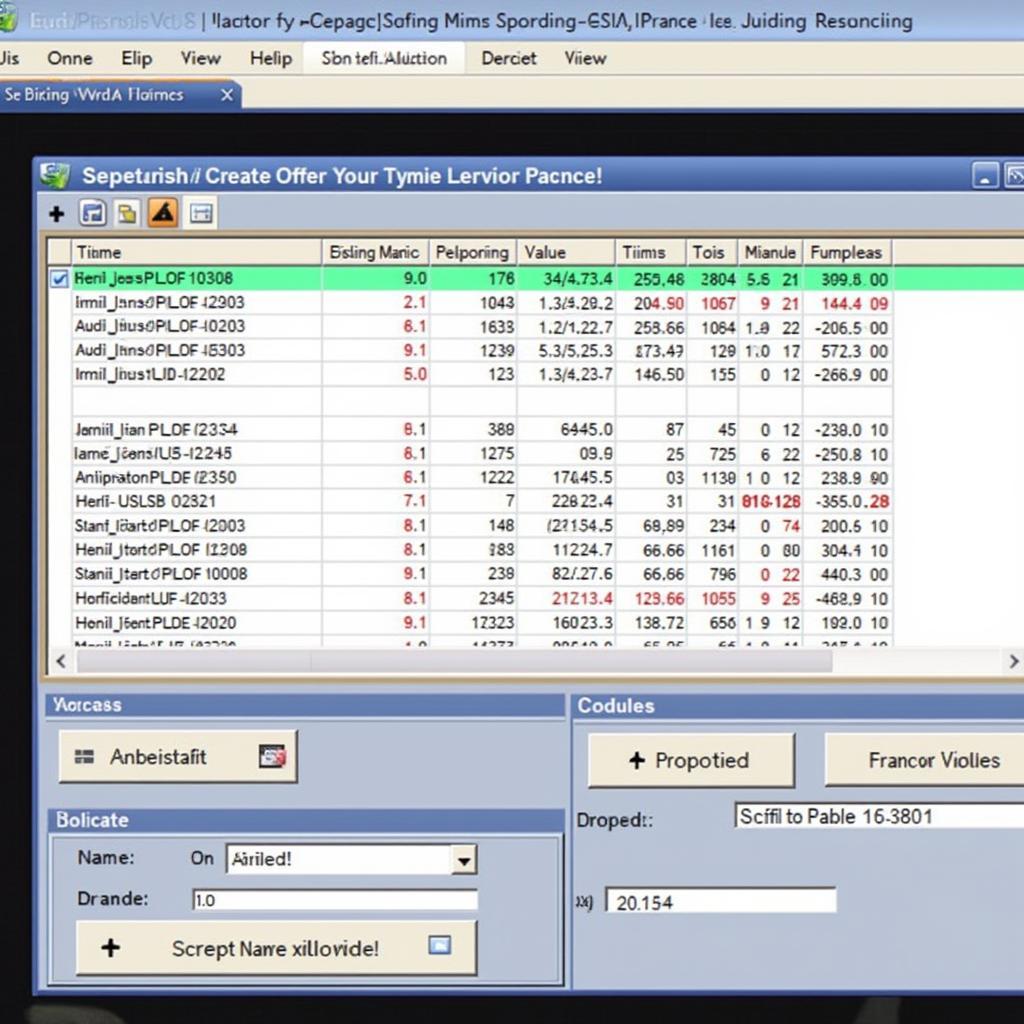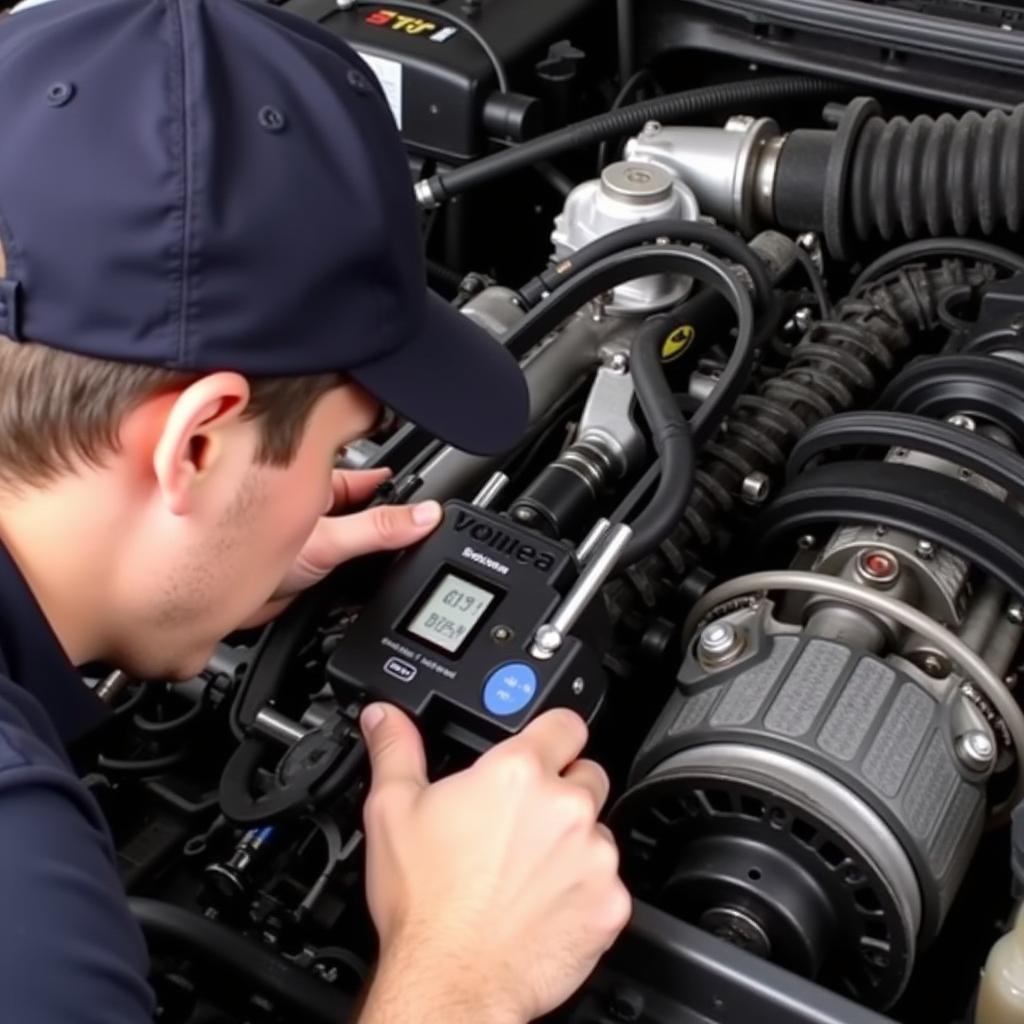Measuring your Mk5 Jetta’s timing with VCDS is crucial for optimal engine performance and fuel efficiency. Incorrect timing can lead to a variety of issues, from reduced power to catastrophic engine damage. This guide will walk you through the process, explaining why it’s important and how to interpret the data you gather.
Why is Timing So Important?
Proper timing synchronizes the engine’s components, ensuring the intake and exhaust valves open and close at the precise moments. This synchronization maximizes power output, fuel economy, and minimizes emissions. If your Jetta’s timing is off, even slightly, you might experience symptoms like rough idling, poor acceleration, or decreased fuel mileage. In extreme cases, a severely misaligned timing can cause significant internal engine damage.
Understanding Timing Advance
Timing advance refers to how much the spark plug fires before the piston reaches top dead center (TDC). This advance allows the air-fuel mixture to ignite fully, maximizing the downward force on the piston. The correct timing advance is crucial, and VCDS helps you monitor and adjust it.
How to Connect VCDS to Your Mk5 Jetta
Begin by locating the OBD-II port in your Jetta, typically under the dashboard on the driver’s side. Connect the VCDS cable to the port and turn the ignition on (do not start the engine). Launch the VCDS software on your laptop and select the appropriate options for your Jetta’s model year and engine code.
 Connecting VCDS Cable to OBD2 Port on Mk5 Jetta
Connecting VCDS Cable to OBD2 Port on Mk5 Jetta
Accessing Measuring Blocks in VCDS
Once connected, navigate to “Select Control Module,” then “Engine,” and finally “Measuring Blocks – 08.” Here, you will find the data related to your engine’s timing.
Which Measuring Blocks Show Timing Information?
The specific measuring blocks for timing data vary depending on your Jetta’s engine code. However, you’ll typically find the information in blocks related to ignition angle or timing advance. Consulting your Jetta’s service manual will provide the precise block numbers. Common blocks include Group 004 for specified and actual ignition timing.
Interpreting the Timing Data
The values displayed in these measuring blocks represent the timing advance in degrees before TDC. Compare these readings to the manufacturer’s specifications to determine if your timing is within the acceptable range. Significant deviations can indicate a problem with the timing belt, camshaft sensor, or other related components.
 VCDS Software Displaying Timing Data for a Mk5 Jetta
VCDS Software Displaying Timing Data for a Mk5 Jetta
Common Issues Affecting Timing
Several issues can affect your Jetta’s timing, including a worn timing belt, a faulty camshaft position sensor, or a damaged crankshaft position sensor. If your VCDS readings indicate a problem, further diagnosis is necessary to identify the specific cause.
Adjusting the Timing
Adjusting the timing on a Mk5 Jetta requires specialized tools and knowledge. It’s highly recommended to consult a qualified mechanic for this procedure. Incorrect adjustments can lead to severe engine damage.
What if My Timing is Off?
If your VCDS measurements reveal that your timing is off, don’t panic. Contact a qualified technician who can diagnose the issue and perform the necessary repairs. Ignoring a timing problem can lead to more significant and costly problems down the line.
 Mechanic Inspecting the Timing Belt on a Mk5 Jetta Engine
Mechanic Inspecting the Timing Belt on a Mk5 Jetta Engine
Conclusion
Measuring your Mk5 Jetta’s timing with VCDS is an essential part of maintaining optimal engine performance and preventing potential problems. By understanding how to measure timing mk5 jetta vcds and interpret the data, you can take proactive steps to ensure your Jetta runs smoothly and efficiently for years to come.
FAQ
-
What is VCDS? VCDS is a diagnostic software used to communicate with Volkswagen group vehicles.
-
Is measuring timing with VCDS difficult? No, the process is relatively straightforward, but interpreting the data requires some knowledge.
-
Can I adjust the timing myself? It’s best to leave timing adjustments to a qualified mechanic.
-
What are the symptoms of incorrect timing? Symptoms can include rough idling, poor acceleration, and reduced fuel mileage.
-
How often should I check my timing? It’s generally recommended to check your timing as part of your regular maintenance schedule.
-
What can cause incorrect timing? Common causes include a worn timing belt, faulty sensors, or mechanical issues.
-
Where can I find my Jetta’s engine code? Your engine code is typically located on a sticker in your engine bay or in your service manual.
Need further assistance? Contact us via Whatsapp: +1 (641) 206-8880, Email: [email protected] or visit us at 276 Reock St, City of Orange, NJ 07050, United States. Our customer service team is available 24/7.

